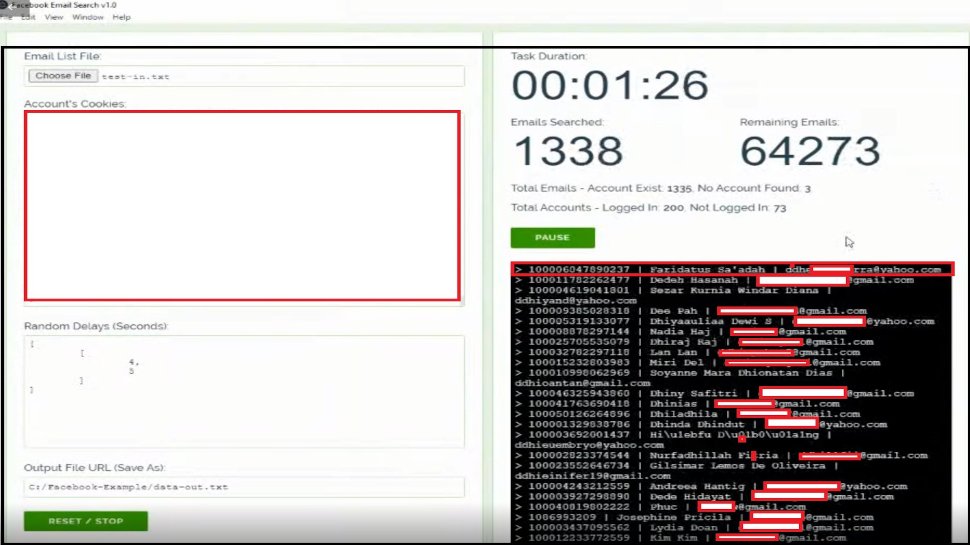Facebook snafu exposes millions of private email addresses
Facebook acknowledges it failed to act on a bug bounty report

Sign up for breaking news, reviews, opinion, top tech deals, and more.
You are now subscribed
Your newsletter sign-up was successful
If reports are to be believed, a new tool is circulating on underground forums that exploits a Facebook vulnerability to expose email addresses attached to user accounts.
A video of the tool in action was delivered to a number of cybersecurity professionals and later uploaded to YouTube by Alon Gal, co-founder and CTO of cybersecurity company Hudson Rock.
Earlier this month, Gal also lifted the lid on another Facebook data breach, which saw the account information of over 500 million users exposed online.
We're looking at how our readers use VPN for a forthcoming in-depth report. We'd love to hear your thoughts in the survey below. It won't take more than 60 seconds of your time.
- Shield yourself with these best identity theft protection services
- Here’s our list of the best VPN services
- Also check our roundup of the best privacy apps for Android
Stolen emails
The individual who made the video claims the tool exploits an active front-end vulnerability in Facebook that the social media giant is already aware of. He adds that the tool is currently available “within the hacking community” and can apparently churn out up to five million email addresses per day.

Facebook was quick to acknowledge the vulnerability exploited by the tool, which had been marked as resolved accidentally.
"It appears that we erroneously closed out this bug bounty report before routing to the appropriate team. We appreciate the researcher sharing the information and are taking initial actions to mitigate this issue while we follow up to better understand their findings," said a Facebook spokesperson.
However, the company has not publicly acknowledged whether the vulnerability has yet been fully remedied.
Sign up to the TechRadar Pro newsletter to get all the top news, opinion, features and guidance your business needs to succeed!
- Check our list of the best secure email providers
Via Motherboard
With almost two decades of writing and reporting on Linux, Mayank Sharma would like everyone to think he’s TechRadar Pro’s expert on the topic. Of course, he’s just as interested in other computing topics, particularly cybersecurity, cloud, containers, and coding.
